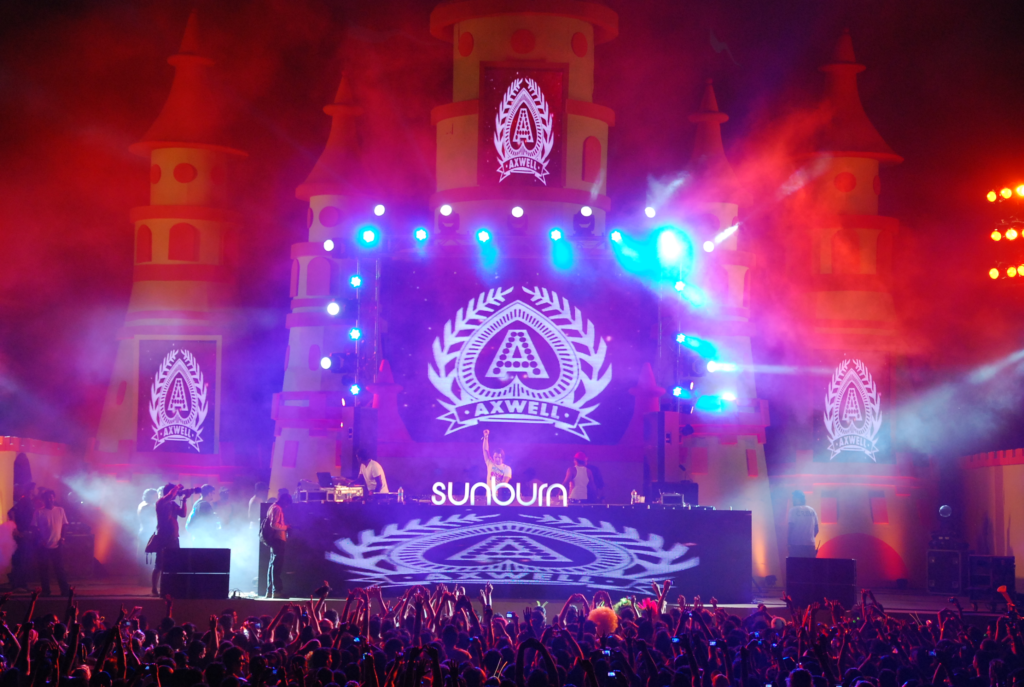
The UK’s music festival scene has long been a beloved part of summer, where fans, artists, and communities come together to celebrate live music and culture. From sprawling fields filled with festival-goers to intimate gatherings showcasing emerging artists, these events have captured the spirit of creativity and connection for decades. However, this year, the excitement surrounding music festivals is tempered by growing concerns. Rising costs, corporate takeovers, and a shifting cultural landscape are threatening the very heart of the festival experience.
Small, independent festivals are especially at risk, with many already canceled or postponed. Meanwhile, larger corporate-controlled events are changing the festival dynamic, raising questions about accessibility, authenticity, and sustainability. As fans, artists, and organizers grapple with these challenges, it’s clear that the UK festival landscape is undergoing a seismic shift.
9. The Current State of Music Festivals

For decades, UK music festivals have been a cornerstone of summer entertainment, offering fans a chance to revel in live performances and celebrate music in a communal setting. This year, however, the festival landscape is facing dramatic changes, leaving both fans and organizers anxious about what lies ahead.
8. Rampant Cancellations

The Association of Independent Festivals (AIF) reports an alarming rise in cancellations, with 45 festivals already postponed or scrapped. This surge highlights the vulnerability of smaller events, which often struggle to compete in an increasingly commercialized industry. For emerging artists, the loss of these platforms is a significant blow.
7. The Impact of Corporate Takeovers

Large corporations like Ticketmaster and Live Nation now control about 30% of the UK festival market, dominating both massive events and once-independent festivals. While their influence has expanded the reach of some festivals, critics worry about the homogenization of the scene, where individuality and creativity are replaced by profit-driven motives.
6. The Changing “Soul” of Festivals

The rise of corporate control has altered the culture of many festivals, especially smaller ones. Once celebrated for their unique charm and close-knit community vibe, these events are increasingly being absorbed into a corporate framework. Fans and organizers lament the loss of the authenticity that gave these festivals their identity.
5. Economic Pressures on Festivals

Rising costs are hitting festivals hard. From skyrocketing artist fees to logistical expenses worsened by post-Brexit supply chain issues, organizers are finding it harder to balance the books. For many, these financial pressures are forcing tough decisions about whether their events can continue at all.
4. VAT Relief as a Lifeline

Industry leaders like Freddy Fellows have called for temporary VAT reductions to ease the burden on festivals. A cut from 20% to 5% could help struggling festivals rebuild and recover, providing a much-needed buffer against financial strain.
3. Activism Shaping Sponsorships

Social activism is adding another layer of complexity. Protests against major sponsors, such as Barclays, have led companies to withdraw from festivals due to links with controversial industries. This shift is pushing festivals to rethink their sponsorship strategies while balancing financial needs and public perception.
2. Ethical Awakening Among Festival-Goers

As sponsorship dynamics evolve, fans are becoming more attuned to the ethical implications of festival funding. Many are beginning to weigh the values of the brands behind their favorite events, reshaping how festivals are organized and supported. The intersection of activism, music, and corporate responsibility is reshaping the festival scene.
1. Looking Ahead: The Fight for Small Festivals

The future of UK music festivals—especially smaller, independent ones—hangs in the balance. As rising costs, corporate influence, and social pressures converge, the spirit of counterculture and community that festivals have long represented is at risk. However, fans, artists, and organizers alike are rallying to preserve the magic of live music. Whether through VAT relief, grassroots support, or new approaches to sponsorship, the fight to keep the festival scene alive is far from over. The question is no longer just how festivals will survive, but how they will evolve.





















